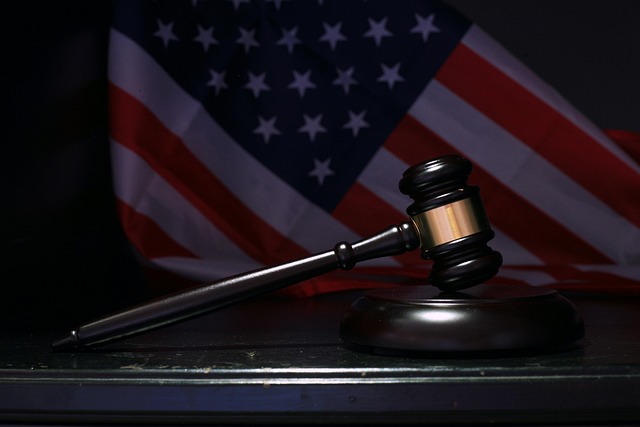Antitrust violation cases focus on ensuring fair competition in markets, with key terms like "per se" and "rule of reason" violations. Securities regulations play a crucial role in these outcomes, protecting investors and influencing investigations, settlements, and transparency in trials. Understanding the intricate framework of both securities and antitrust laws is vital for plaintiffs and defendants alike to navigate complexities and ensure justice within this comprehensive legal landscape, as highlighted by "How Securities Regulations Impact Litigation Outcomes."
“Antitrust violation cases play a pivotal role in maintaining fair market competition. This article delves into the intricate world of these legal battles, offering a comprehensive guide on key definitions, the interplay between securities regulations and litigation outcomes, and the far-reaching impacts on business strategies. By exploring these aspects, we uncover how regulatory actions shape case resolutions, fostering ethical practices while ensuring consumer protection. Understanding these dynamics is essential for businesses navigating complex antitrust landscapes.”
- Understanding Antitrust Violation Cases: Key Definitions and Legal Framework
- The Role of Securities Regulations in Shaping Litigation Outcomes
- Impact and Implications: How Regulatory Actions Affect Case Resolutions and Business Practices
Understanding Antitrust Violation Cases: Key Definitions and Legal Framework

Antitrust violation cases are legal battles aimed at upholding fair competition in markets. At their core, these cases involve allegations that businesses have engaged in practices restricting trade, such as price-fixing, market allocation, or monopolization. The legal framework for antitrust is primarily governed by statutes like the Sherman Antitrust Act and the Clayton Act in the United States. These laws aim to promote competition, prevent monopolies, and protect consumers from exploitative business behavior.
Understanding these cases requires familiarity with key definitions like “per se” violations (clear cuts like price-fixing) and “rule of reason” violations (assessing the purpose and effect of specific actions). Securities regulations play a significant role in antitrust litigation outcomes, especially when corporate conduct involves insider trading or misuse of market information. These regulations help ensure that companies operating in both securities and antitrust domains adhere to fair practices. Moreover, the potential for jury trials adds a layer of complexity, as corporate and individual clients alike can face liability and civil damages, with the right to a trial by their peers. Avoiding indictment is a crucial consideration for businesses accused of antitrust violations, underscoring the importance of strict compliance and proactive legal strategies.
The Role of Securities Regulations in Shaping Litigation Outcomes

Securities regulations play a pivotal role in shaping the outcomes of antitrust violation cases. These regulations are designed to protect investors by ensuring fair practices in financial markets. When an antitrust case involves securities, the interplay between antitrust and securities laws becomes crucial. The general criminal defense strategies employed in such cases must consider both sets of rules, as they can significantly impact the investigative and enforcement process.
Across the country, these regulations guide investigators and enforcers at every stage of the process. They help establish what constitutes illegal behavior, set boundaries for competitive practices, and dictate how evidence is collected and presented. Understanding this regulatory framework is essential for both plaintiffs and defendants. By navigating these complexities, legal teams can build stronger cases, ensuring that justice is served while adhering to the comprehensive legal landscape governing securities and antitrust laws.
Impact and Implications: How Regulatory Actions Affect Case Resolutions and Business Practices

Antitrust violations can have far-reaching consequences for businesses, and regulatory actions play a pivotal role in shaping case resolutions. When securities regulations enter the picture, they bring an additional layer of complexity to litigation outcomes. These regulations are designed to protect investors and maintain fair market practices, which can significantly influence how cases are handled throughout the investigative and enforcement process.
Regulatory interventions often lead to more robust investigations, ensuring a thorough examination of all stages involved. This can result in quicker resolutions through settlements or negotiated agreements, as companies face stricter standards and potential penalties. Moreover, these regulations enhance transparency, impacting jury trials by providing jurors with comprehensive insights into the business practices at play. For his clients, this means effective representation requires an understanding of both legal and regulatory frameworks to navigate complex cases successfully.
Antitrust violation cases are complex legal battles that significantly shape business landscapes. Understanding these cases involves grasping key definitions, legal frameworks, and the interplay between securities regulations and litigation outcomes. As seen throughout this article, securities regulations play a pivotal role in resolving these cases and influencing business practices. By examining How Securities Regulations Impact Litigation Outcomes, we gain insights into strategies for compliance and the broader effects on market competition and fairness.






